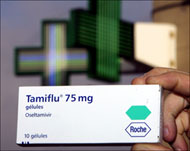China bird flu cases spread
China has reported its third outbreak of bird flu in a week, as officials battle to control the spread of the deadly virus.

More than 500 chickens and ducks were killed by the latest outbreak in central China, prompting authorities to destroy 2487 others in an attempt to keep the disease from spreading, the government’s veterinary bureau said in a report.
The news comes amid growing calls from public health groups for governments to bypass patent laws and mass-produce generic versions of potentially lifesaving anti-viral drugs.
The H5N1 strain of bird flu has killed or forced the culling of tens of millions of birds since it first emerged in 2003.
Occasional human outbreaks of the disease have killed more than 60 people in Southeast Asia, mostly in Vietnam and Thailand.
“The repeated outbreaks really is a signal of seriousness and the inability of the surveillance system of the region in general,” said Noureddin Mona, Beijing representative of the UN Food and Agriculture Organisation.
The World Health Organisation has encouraged countries in the Asia-Pacific region to develop surveillance and early response systems to identify and contain the disease, but many poorer nations say they lack the resources to stop bird flu from spreading.
Mutation warnings
Japan on Wednesday began handing medical supplies worth ¥25 million ($216,000) to Indonesia to help tackle an outbreak that has killed four people there.
 |
|
Labs will be upgraded to identify |
The equipment will be used to upgrade laboratories so that officials can identify and track down the origin of the virus.
Most human cases of bird flu have been linked to direct contact with sick birds. But officials warn the virus could mutate to a form that can spread easily among humans, possibly triggering a global pandemic that could kill millions.
That fear has prompted a debate over whether to ease rules that restrict governments from producing and exporting generic versions of patented drugs capable of fighting the bird flu disease in humans.
Patent licences
Under World Trade Organisation (WTO) rules, countries facing a public health emergency can issue so-called compulsory licences to legally manufacture and export generic versions of patented drugs under strict conditions.
 |
|
Tamiflu is seen as the drug most |
Health groups, including the medical relief agency Medecins Sans Frontieres, have urged the WTO to simplify the rules to encourage more producers to make generic drugs to ensure they are widely available.
The campaigners cite Tamiflu, which is produced by Switzerland’s Roche Holding AG, and is considered one of the few drugs likely to be effective in an outbreak of bird flu in humans.
Countries around the world have rushed to stockpile Tamiflu, prompting concerns that Roche will be unable to keep up with demand. China, for example, has said it is considering stockpiling anti-flu drugs, a daunting task in a country of 1.3 billion people.
Even countries that have already begun stockpiling drugs may be caught short, experts say.
Generic drugs
A pair of Australian researchers published a report in the Medical Journal of Australia on Wednesday warning that the country’s substantial stockpile of influenza drugs will not be enough in the event of a bird flu pandemic.
“I think the ethical, the political, the future security implications of the situation where only the wealthy countries have access to vaccines and drugs would be unimaginable” Julio Frenk, |
“Australia has an opportunity and a responsibility to promote compulsory licensing and generic production in the Asian region,” Dr Buddhi Lokuge, one of the researchers, said in a statement.
Some countries – including Thailand, India and Argentina – have indicated they may authorise the generic production of the anti-viral drugs, the researchers said.
Indian drug maker Cipla – which says it has developed a generic version of Tamiflu – has applied to Roche for permission to copy the flu drug, but has pushed the Indian government to invoke compulsory licensing anyway.
Concerns
Some officials at a meeting of health ministers from 30 countries in Canada expressed concern about possible shortages of Tamiflu and other drugs if widespread outbreaks occur.
Mexico’s Health Minister Julio Frenk sought support for a plan to have developed countries devote part of their influenza drug stockpiles to share with developing nations.
“I think the ethical, the political, the future security implications of the situation where only the wealthy countries have access to vaccines and drugs would be unimaginable,” Frenk said.
“It would be as harmful, or even more harmful, than the pandemic itself.”